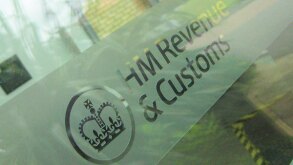One of Brexit’s many impacts is the changes to the tax rules that will happen at the end of the transition period. This includes the movement of goods between the United Kingdom (UK) and the European Union (EU) becoming imports and exports for customs and VAT purposes. In this respect, the government of the UK recently published its standard customs import tariff that will replace the standard customs import tariff of the EU after the end of the transition period.
To replace the EU’s customs import tariff, the UK will apply its own customs tariff, the UK Global Tariff (UKGT), to goods imported into the UK, either from an EU member state or any other jurisdiction. The UKGT will apply from January 1 2021, i.e. after the end of the transition period. In the absence of any preferential trading arrangement, such as a free trade agreement (FTA), the duty rates set out in the UKGT will apply to UK imports (subject to any reliefs or tariff suspensions in place).
In other words, the UKGT will, in principle, apply to EU imports into the UK after the end of the transition period, unless the EU and the UK conclude otherwise in a trade agreement. Such an agreement should, in principle, lower or reduce to zero the duties on all or some goods; and the political declaration sets out the ambition of both parties to achieve duty-free and quota-free access to each other’s markets.
It is important to note that transactions involving the movement of goods between Northern Ireland and EU member states will continue to be considered as intra-EU movements after the end of the transition period. Goods imported into Northern Ireland from EU member states will, therefore, not be subject to UK customs duties. This special regime applies as long as it has democratic consent in Northern Ireland, with the first consent period being four years after the end of the transition period.
The UKGT eliminates or reduces many customs tariffs compared to the existing EU customs tariffs. However, the mere fact that a customs tariff may be imposed on EU products that were previously traded freely in the UK (and vice versa) may have a significant impact on EU businesses. Even if the UK and the EU agree to an FTA that eliminates tariffs, businesses will still need to meet the FTA’s rules of origin to qualify for the preferential duty rates.
It is not possible in this short article to provide much detail regarding the 11,830 positions in the UKGT. The full list of the UKGT is published and searchable on the UK government’s website. Even if one of the tariff’s aims is to reduce the duties, they may remain quite significant for some products. For example, steel products would generally not be taxed, but some would be subject to customs duties with rates of 2% or 4%, and a few up to 8%. Similarly, glass products would generally not be subject to customs duties, except a few subject to duties up to 10%.
The application of the UKGT will, of course, affect businesses selling goods to the UK. The imposition of duties could have a direct impact on the price of products, compared to the exisiting situation where no duties are due. In particular, EU undertakings may lose a competitive advantage compared to competitors established in non-EU jurisdictions, whose products are already subject to customs duties and who will benefit in some cases from the reduction of rates foreseen by the UKGT, compared to the EU ones that are applied to their products. Non-EU companies should also examine how the UKGT may affect them too, even favourably, should the tariff reduce or abolish the duties that apply under the EU tariff.
At the end of the transition period, customs formalities will have to be fulfilled when goods are leaving the EU and when they enter the UK, even if the UK and the EU agree to an FTA. Concerned taxable persons should ensure their capability to handle these custom formalities, possibly by designating a custom agent. From a practical viewpoint, the accomplishment of these formalities may also affect the delivery time of products.
Businesses will have a few months to analyse the impact of the UKGT on their business and take appropriate measures.
Christian Deglas
T: +352 45145 2611
Michel Lambion
T: +352 451 453 993













